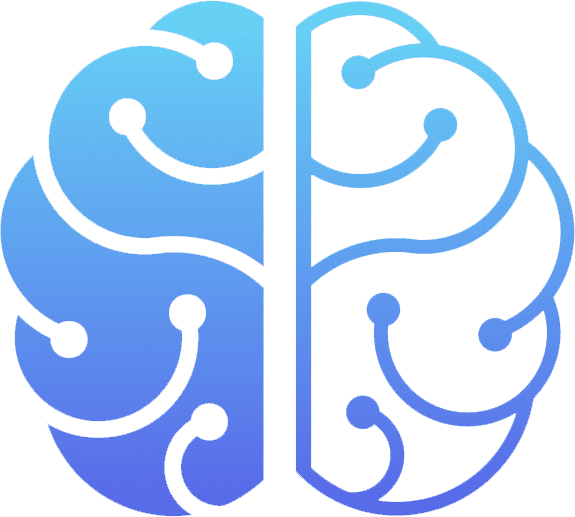About Us
Our highly trained professionals understand the need for individualized solutions focusing on your specific needs. You can overcome many challenges with our holistic approach.

Our Story
Dynamic Learning Services is an organization committed to improving the everyday life of individuals through the facilitation of knowledge, strategies, and resources.
We Celebrate Neurodiversity.
We use methods and assessment tools grounded on research and utilize a problem-solving growth mindset to understand a person’s cognitive processes and uncover underlying causes of behaviors, and their relationship to neurobehavioral functioning.

We strive to provide the highest quality and empathic services to support the unique challenges of the individuals we serve.
Our Mission
Our mission is to assist clients in learning about themselves and how learning occurs. Learning is absolutely essential in order for individuals to evolve and make necessary changes that ultimately lead to a rich and full life.
Our Values
- We respect the rights and dignity of the clients to whom we provide services, including privacy, confidentiality, and self-determination.
- We embrace and respect cultural, individual, and role differences, including those based on age, gender, gender identity, race, ethnicity, culture, national origin, religion, sexual orientation, disability, language, and socioeconomic status, and fully consider these factors in providing quality services.
- We strive to benefit the individuals we serve and take every precaution to safeguard the individual’s welfare.
- We strive to build trusting and positive relationships with our clients.
- We strive to provide honest and accurate information using empowering techniques grounded in evidence-based research.
- We strive to treat every individual with fairness and provide equal quality of services to our clients.
Our Leadership

Dr. Michael Appelgren
Michael Appelgren, PsyD, is the founder of Dynamic Learning Services. He is licensed as a psychologist in New York (NY), New Jersey (NJ), and Pennsylvania (PA) and a certified school psychologist in NJ and NY. He earned his baccalaureate degree in psychology, his master’s degree in psychological studies, and his educational specialist’s degree in school psychology from Seton Hall University.
Dr. Appelgren received his doctoral training in school psychology with a concentration in cognitive-behavioral therapy and neuropsychology from the Philadelphia College of Osteopathic Medicine (PCOM).
Dr. Michael Appelgren
- PsyD, School Psychology, Philadelphia College of Osteopathic Medicine.
- Ed.S., School Psychology, Seton Hall University.
- MA, Psychological Studies, Seton Hall University.
- BA, Psychology, Seton Hall University.
- American Board of School Neuropsychology (ABSNP)
- National Association of School Psychologists (NASP)
- American Psychological Association (APA)
- World Professional Association for Transgender Health (WPATH)
- New Jersey Psychological Association (NJPA)
- New York State Psychological Association (NYSPA)
- Pennsylvania Psychological Association (PPA)
Our Expertise

NEUROPSYCHOLOGICAL EVALUATIONS
A neuropsychological evaluation consists of a series of formal and structured psychological and academic/achievement tests, as well as clinical interviews to help identify one’s emotional, behavioral, learning, and cognitive profile.

Executive Functioning Coaching/Organizational Skills Instruction
If you struggle with daily functioning such as keeping up with assignments and projects, decision-making, difficulty staying focused when required, then you might have vulnerability in your executive functioning.

Cognitive-Behavioral Therapy (CBT)
Numerous research studies suggest that CBT leads to significant improvement in functioning and quality of life. In many studies, CBT has been demonstrated to be as effective as, or more effective than, other forms of psychological therapy or psychiatric medications.

Special Education Law and Individualized Education Program (IEP)
An Individualized Education Plan (or Program) is also known as an IEP. This is a plan or program developed to ensure that a child with an identified disability who is attending an elementary or secondary educational institution receives specialized instruction and related services.

Testing accommodations for school and standardized testing (e.g., MCAT, GMAT, SAT, ACT, LSAT, BAR Exam and GRE)
In the USA, American students begin taking standardized tests in elementary school, also known as primary school. A standardized test is a test that is given to students in a very consistent manner; meaning that the questions on the test are all the same, the time given to each student is the same, and the way in which the test is scored is the same for all students.
Frequently Asked Questions
Have More Questions?
Do you accept insurance? Medicaid or Medicare?
We do not accept insurance, Medicaid, or Medicare. We accept cash, all major credit cards, and Zelle. Clients are provided, upon request, a superbill to be submitted to their insurance company for reimbursement. Some or all fees may be covered by health insurance if a plan includes outpatient mental health coverage; however, insurance companies do not reimburse for all conditions that may be the focus of assessment and psychotherapy. Therefore, it is the client’s responsibility to verify their coverage with their insurance company. Please remember our services are provided and charged to the client, not the insurance company, so the client is responsible for payment.
How long do sessions last?
Therapy Sessions last around 45-60 minutes.
Evaluations and testing vary depending on the age and educational background of the individual, and the type of evaluation required. Testing can be as brief as 2 hours or over 8 hours.
Where are sessions held?
Services are provided virtually or in-person.
Where are you located?
We provide services in Pennslyvania, New Jersey, and across all 5 boroughs in New York City (Manhattan, Bronx, Queens, Brooklyn, and Staten Island), Long Island, and Westchester County.
We also provide telehealth services in the following states: AL, AZ, AR, CNMI, CO, CT, DE, DC, FL, GA, ID, IL, IN, KS, KY, MD, ME, MI, MN, MO, NE, NV, NH, NC, ND, OH, OK, RI, SC, TN, TX, UT, VA, WV, WI, and WY.
What ages do you evaluate and treat?
We evaluate individuals across the lifespan. Most of our clients are ages 3-65.
How long before any progress?
This timeframe is different for every individual. Progress requires a commitment to make changes; however, there is no guarantee that psychotherapy will yield positive or intended results. It is important to note research shows participation in therapy can be beneficial in a number of ways, including improving interpersonal relationships and improving one’s mood.
What type of treatment modality do you use?
We take a holistic approach to treatment and implement cognitive-behavioral therapy (CBT).
What is cognitive-behavioral therapy (CBT)?
CBT focuses on challenging cognitive distortions and behaviors, improving emotional regulation, and developing personal coping strategies. CBT is considered to be a brief form of therapy model (e.g., approximately 12-20 sessions). It is important to consider the following factors in determining the length of therapy:
- Current/Past Symptoms
- Severity of symptoms
- The duration of symptoms (e.g., How long symptoms have been present?)
- Quick progress
- Level of engagement in therapy
- Readiness to change
- Level of distress or discomfort
- Level of family members and other people’s support
What services do you provide?
- Individual, Children, Couples, and Family Therapy
- Neuropsychological Evaluations for schools and accommodations (e.g., SAT, GRE, LSAT, ACT, Bar Exam, MCAT, GMAT)
- Mental Health Evaluations
- Executive Functioning/Organizational Skills Training
- Parent Management Training (PMT)
- Consultation (Special Education Law, Individualized Education Program (IEP), LGBTQIA+ related topics)
How do I prepare my child for an evaluation?
What you tell your child about the evaluation process depends on how much they can understand. Be simple and brief and relate your explanation to a problem that your child is aware of such as difficulty paying attention or trouble with spelling. You can tell your child they will be completing brain activities to identify what they are “good at” or “not so good at” and how to make school less challenging or more rigorous. Informing your child they will be completing an evaluation or test may increase their anxiety. You may also tell your child “nobody gets every question right,” and that the important thing is to “try your best.”
What happens if I need to change my appointment or cancel?
Missed and/or canceled sessions pose issues for both clients and therapists. We hold a scheduled appointment time specifically for you. We see a limited number of clients so we can give each individual, couple, or family the focus and attention they deserve. It is extremely difficult for us to fill last-minute canceled sessions on short notice. Therefore, we charge for therapy appointments canceled with less than 24-hours notice unless we can find another time during the week that works for both the client and the therapist. If we are able to find an alternative time, we will happily reschedule at no extra fee. Please note we have a 48-hour cancelation policy for evaluations and assessments (e.g., mental health and neuropsychological).
Which evidence-based programs do you use with clients?
Depending on the client’s individual needs, some of the evidence-based programs used in practice include Coping Cat, The C.A.T. Project, organizational skills training (OST), and Parent Management Training (PMT; Kazdin).






